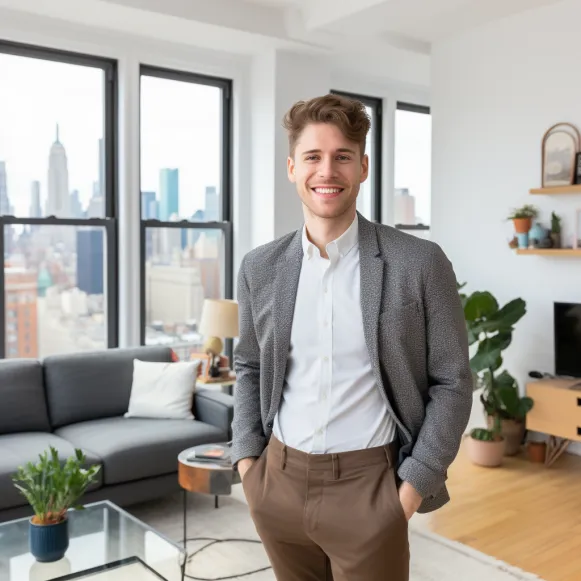A financially independent investor shares the strategy he used to buy a NYC apartment for ‘about 20% cheaper than I would have bought it last year’

- Millennial Money founder Grant Sabatier is focusing on diversifying his portfolio.
- He’s starting to invest in more real estate and says he recently purchased an apartment in NYC.
- He landed a deal after looking at listings in a very specific area for months.
Grant Sabatier, the founder of Millennial Money, believes that now is an excellent time to be an investor.
“This is an incredible time to buy a lot of things given interest rates are so high, which significantly reduces competition if you have the cash or access to private lending,” said the self-made millionaire and author of “Financial Freedom” to Business Insider.
He is diversifying his portfolio by purchasing niche websites and collectibles such as Rolex watches.
Sabatier, who owns property in both Ohio and Indiana, is also expanding his real-estate portfolio. He stated that he had recently purchased an apartment in New York City.
“With real estate, commercial and residential, everyone is kind of paralyzed right now,” he went on to say. “A, because interest rates are so high, people have less access to capital and less purchasing power.” And B, people are simply not moving. People do not want to leave their lower-interest-rate mortgages to take out a higher-interest-rate mortgage.”
Sabatier saw the stalemate as an opportunity and began looking for a buyer in early 2023.
Establishing a ‘buy box’ and looking at listings every day to better identify opportunities
Sabatier knew exactly which neighborhood he wanted to live in and narrowed his search to a small section of that neighborhood. Then he went through listings every day for months.
“You can pretty quickly understand the trends and the demand, and then recognize if something is shifting,” he said, by constantly monitoring listings on sites like Realtor.com, Zillow, and Redfin. “It’s as if, ‘Oh wait, these two-bedroom apartments were going for this and now they’re not.'” They’re just sitting now. ‘Could this be my chance?'”
Mike Zuber, a California-based real estate investor, refers to this strategy as “learning your buy box.”
Your buy box should be concentrated and contain 20 to 40 active listings, but it’s not just the area you’re defining that matters; it’s also the type of property. Do you want to buy a single-family or multi-family house? Is it better to live in an apartment or a condo? Which is better, a two-bedroom or a four-bedroom?
Spend time walking through different neighborhoods, attending open houses, and looking at rental listings to determine your buy box.
“Being a bit more rigorous about it can really pay dividends,” Sabatier said. “That’s what I did: I was laser focused on a five-block by four-block radius for a six-month period and then knew immediately when there was a deal that was perfect based on my criteria.”
He had a significant advantage in that he could make all-cash offers, but anyone can use the “buy box” strategy to find deals right now when there are fewer buyers, he noted.
“I was able to get an apartment in Park Slope for about 20% cheaper than I would have bought it last year, just because the buyer pool is so much smaller — even in New York where there are so many cash-buyers,” Sabatier said. “When the buyer pool for anything shrinks, it can be a real opportunity.”
You should also consider how long a property has been on the market.
“The longer a place sits, typically the better deal that you can get,” he said. “You can wait and watch properties that are sitting and then use that to your negotiation advantage by just paying attention.”
Seasonality is also important when it comes to purchasing real estate.
“It’s always good to try to buy a place when other people aren’t buying, and there’s this concentrated period of four to six weeks in mid April to early June when it’s the buyers frenzy,” Sabatier said. “Obviously, life circumstances determine when you can and can’t buy but trying to buy outside of the prime spring season, especially in a place like New York, allows you to be much more opportunistic.”






